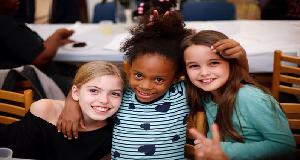Articles
Childhood is a period of many changes. At birth, children live in a world of constant learning and assimilating, trying everything in their power.

Currently, children are required to learn how to master the computer, speak other languages​​, practice sports, always take high notes at school, besides being nice and obedient. As they are always busy with these activities (not always having time to play, cry, fight, …), they simply don’t have time to be what they are, that is, children.
It’s very common the parents’ charge towards children regarding their performance, especially in the competitive world in which we live. Parents will try in every way, even unconsciously, to give the child everything that they had in their own childhood, however, we must face their son or daughter is a different person, different from his/her parents, having different characteristics and interests.
So many responsibilities can be placed as an obstacle, since the childcan’t always easily adapt to them. The child gets lost among so much information and requests, creating an anxiety before the fear of making mistakes or fail. It often makes use of behaviors such as aggression, hyperactivity, anxiety, fears, bedwetting, being too good, being attached to adults, retain feces, develop tics, having learning difficulties and relationships problems with colleagues and parents, lack of limits, panic disorder and depression, among many others.
There are children who express these feelings in another way. When they realize they’re in the midst of conflict (between parents, school or in any specific situation), they end up getting sick in an attempt to inform their parents that something isn’t going well. Faced with such conflicts, they may feel responsible for dilemmas that aren’t theirs, but they experience it as it was. Pay attention to your child’s behavior, pay attention to all these possible changes. If they do occur, get help. Child’s psychotherapy aims to help children and parents when something isn’t right in the child’s emotional or social development.
Through relaxation and expressive techniques, that makes easier the work with these contents, which are often painful and difficult to address, the psychotherapist and child discover together what’s hindering its development. With these answers, they reconstruct together other ways to place this child in the world. In parallel of the child’s therapy, the psychotherapist helds orientation sessions for parents, which is essential to the therapy’s success, because they bringvaluable information about the child and they get some support and clarification.
Besides being recommended for the treatment of specific problems (such as hyperactivity, depression, mania…), the child’s psychotherapy provides support for children, making they able to choose their own path, since the others can’t always choose for them. Regardless of the “label” (or diagnoses) that carries, the child can rediscover itself, differentiating from external reviews and evaluations made ​​for each other, being happier in the present time and suffering less in adulthood.
MyriamDurante
Psychotherapist
